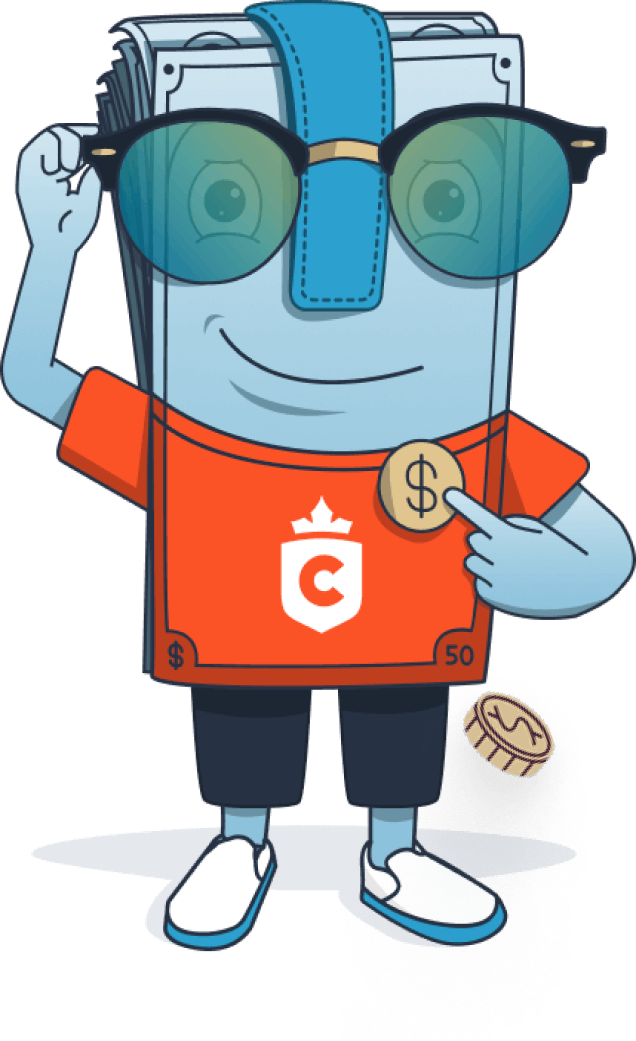

At least 29% of Canadians have never created or used a financial budget. So if you haven’t either you’re in good company. That said, now might be a good time to start.
Having a financial budget helps to stay on top of your spending habits and means that you can plan for the future. This means you can enjoy your money in a sustainable and relaxing way. However, a budget only works if you can stick to it.
Want to know more about how to create a budget? Well, you’ve come to the right place! Read on to find out thirteen brilliant budgeting tips that will help you create a budget and stick to it.
1. Identify Your Long-Term Goals
Only half of Canadians have some sort of long-term financial plan in place. However, understanding your long-term financial goals is vital for your current and future financial stability.
So before you put together your budget, it is a good idea to identify these. Your goals may vary depending on your financial situation. For example, you might want to:
- Get out of debt
- Save for a housing deposit
- Put together an emergency savings fund
- Create a college fund
- Save up for work on your home
Whatever your reason, knowing how much you are aiming to save will help you budget.
How much you want to put aside on a monthly basis will depend on when you need to save up by. Of course, it is important that you are realistic about how much you can contribute to your savings on a regular basis.
2. Put Together Your Budget
Once you know what your long-term goals are, you can look at how to create a budget. This involves looking at your:
- Regular income
- Your fixed outgoings
- Your variable outgoings
- Your long-term financial goals
Of course, you have to be able to cover any fixed outgoings, such as rent and bills, with your income.
Once you have done this you will know how much you have to cover your variable outgoings. This includes things like groceries, which are essential but can vary depending on where you shop.
You should be realistic about how much you can afford to live on but also need to be honest with yourself about non-essential expenses. That way you will have more money to put in your savings.
3. Cut Down on Expenses
One of the best ways to save money is to cut down on your day-to-day unnecessary expenses.
For example, the majority of Canadians buy their coffee on the go rather than making it at home. This can add up to more than $1,600 a year just to satisfy a caffeine craving!
This also means that cutting out these daily spends can save you a lot of money in the long run. Some other ways to cut down on your daily expenses include:
- Walking or cycling to work
- Making your own lunch instead of eating out
- Do your own dry cleaning at home using a dry cleaning kit
- Make homemade gifts rather than buying them
Of course, some expenses, such as groceries are unavoidable. Because of this, you might also want to look for cheaper alternatives for the things you still need.
4. Look for Cheaper Alternatives
Switching brands and where you shop can make a big difference when it comes to money-saving. For example, own-brand or unbranded items are usually much cheaper than other brands.
If you do want to go shopping for non-essential items, like clothes, homeware, or books, try shopping in thrift shops. These are much cheaper than other stores and come with the opportunity to find truly unique items.
5. Use a Cash Envelope
Knowing how to budget is one thing but sticking to it is quite another. This can be very difficult if you aren’t used to budgeting.
Using a cash envelope can really help. This involves taking out a set amount of cash each week and keeping this somewhere safe in your home. Then you can only use this and not your card to pay for things.
This helps you to visualize how much you have to spend over short periods of time.
6. Keep a Record of Spending
If you don’t want to use a cash envelope, keeping a record of your spending can help you keep track of your money.
There are lots of great apps that can help you to keep on top of your spending easily. These include:
- Monzo
- Mint
- Spendee
- Emma
- Wally
- Cleo
A lot of these apps let you set your spending budget so that you can stay on track. You will get notifications about how much money you have left to spend for a set period of time.
7. Reassess Your Subscriptions
Streaming platforms are some of the most popular ways that people in Canada access entertainment. You can use them for watching TV and listening to music and podcasts.
However, each subscription comes at a monthly or annual price and these can really add up over time.
Because of this, it is important to review which subscriptions you are paying for and when. If you find that you aren’t using certain subscriptions very much, pausing them will save you a lot of money.
8. Look for Hidden Bank Fees
While your bank is in charge of looking after your money, they can sometimes charge you for this privilege. This can result in hidden bank fees that will add up over time.
Checking for these is one of our top money-saving tips. If your bank has been charging you hidden fees, you can contact them directly about these. Most banks will waive these if you challenge them so it is worth chasing them up.
9. Use Coupon Apps
Living on a budget doesn’t mean that you have to compromise on your quality of life.
Looking for discount and coupon apps means that you can save money on the activities that you enjoy doing. For example, you could save money on a spa trip that would normally be out of your budget.
Coupon apps are available for everything from grocery shopping to family fun activities to vacations. So there is something to suit everyone.
10. Keep Utility Costs Down
Your utility costs are a given when it comes to your monthly spending. However, there are several things you can do to keep your utility costs down.
You could:
- Compare your bills prices with other gas and electricity companies and consider switching
- Keep your heating, lighting, and other energy usages as low as possible
- Set up an automatic payment plan to save money on your bills
Reducing these costs will ensure that you have more budget to work with.
11. Try a No-Spend Challenge
If you want to kick start your budgeting, doing a no-spend challenge can help. This involves putting together a list of essential items and only letting yourself buy things on your list.
A no-spend challenge isn’t a long-term budgeting strategy. However, it can be a helpful way to reassess your spending habits. This means that at the end of your spending challenging you will find it a lot easier to stick to your budget.
12. Adjust Your Saving Contributions
As we’ve already mentioned, having saving pots put in place is a great way to give yourself financial security in the future. Creating a pot involves making regular (ideally fixed) contributions to these pots.
However, it is important that your saving goals are realistic. If your financial or employment situation changes, you may have to readjust your contributions.
Ideally, this should be a last resort. Keeping on top of your expenses should be your first port of call before you adjust your saving contributions.
13. Cut Yourself Some Slack
Creating a budget can help you create some financial stability in your life and works best as a long-term plan. This means that your budget needs to be sustainable so be kind and honest with yourself while putting it together.
Socializing, working out, and other extracurricular activities are all important for your emotional well-being. So don’t cut these out completely.
Instead, it is much better to find alternative ways to enjoy these without spending too much. If you are working to a budget, be honest with your friends and family so you won’t feel under pressure to stick to expensive plans. They will be more than happy to find fun, cheaper alternatives!
Keep These Budgeting Tips in Mind to Stay on Top of Your Finances
When it comes to budgeting, small changes will make all the difference. If you get on top of your budget today, you’ll quickly find that your savings stack up. So keep these budgeting tips in mind and you can’t go wrong.
If you’re in need of more immediate financial help, get in touch today to speak to our team about loan options. We’re here to help!





